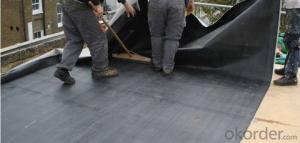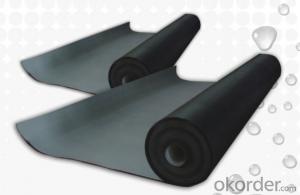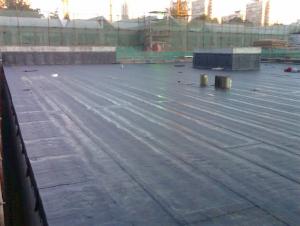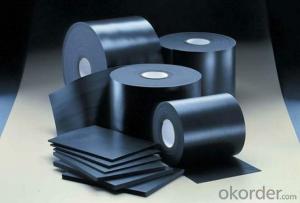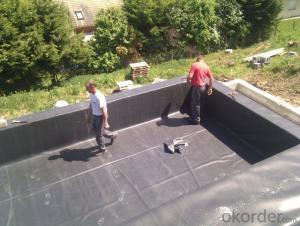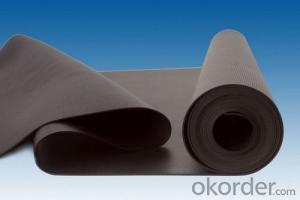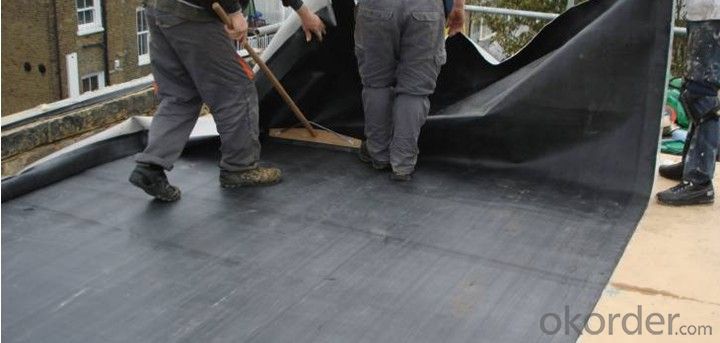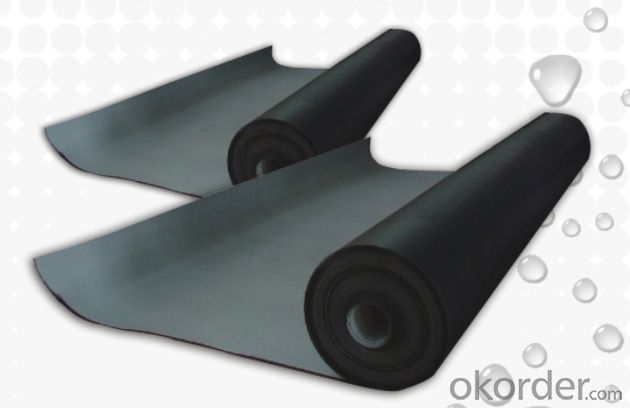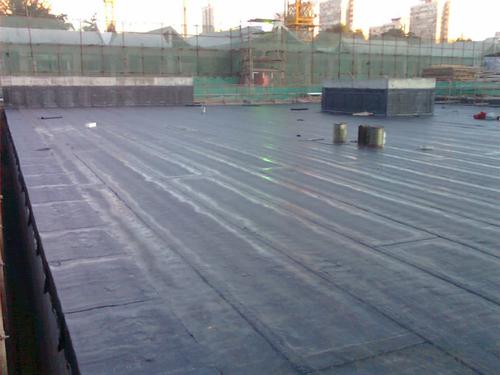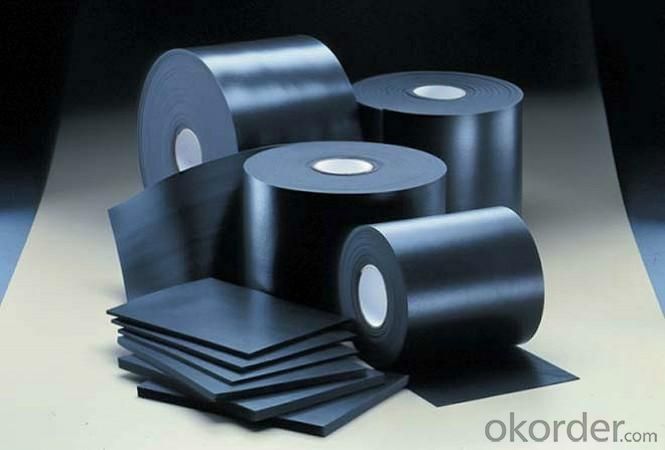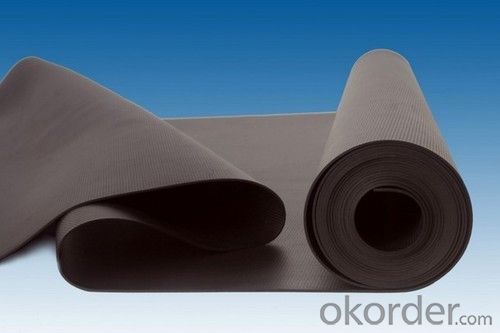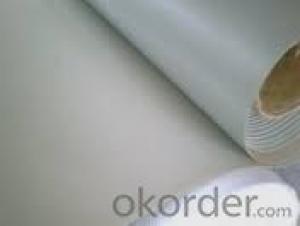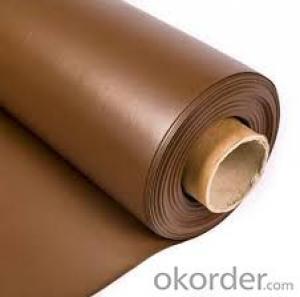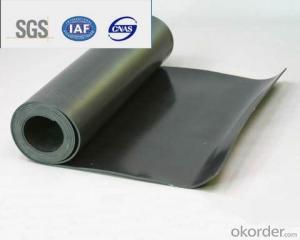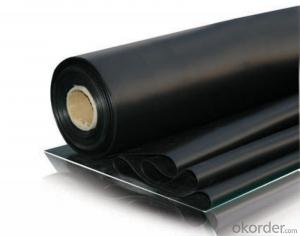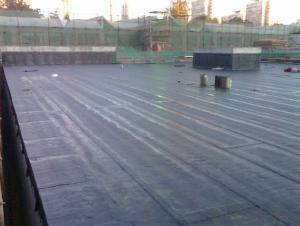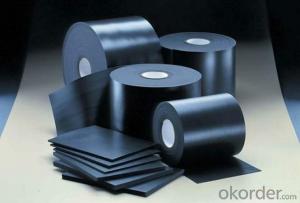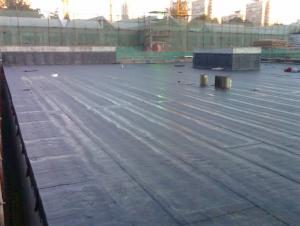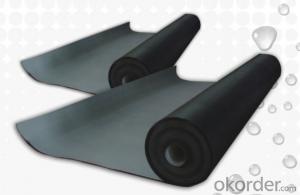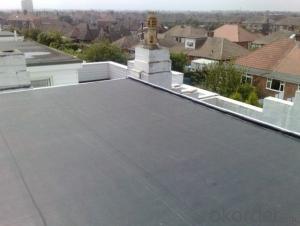EPDM Coiled Rubber Waterproof Membrane for Top Roofing
- Loading Port:
- Shanghai
- Payment Terms:
- TT or LC
- Min Order Qty:
- 10000 m²
- Supply Capability:
- 1200000 m²/month
OKorder Service Pledge
OKorder Financial Service
You Might Also Like
EPDM Coiled Rubber Waterproof Membrane for Top Roofing
Description Of EPDM Coiled Rubber Waterproof Membrane for Top Roofing:
1. EPDM waterproof membrane is made from ternary ethylene-propylene rubber, which is for waterproofing of exposed and non-exposed applications.
2. EPDM waterproof membrane production adopts the world-advanced equipment of cold feeding extrusion and continuous vulcanization technology.
3. EPDM waterproof membrane is of high elasticity among high polymer waterproof materials and becomes a world-popular waterproofing material.
Main Features of EPDM Coiled Rubber Waterproof Membrane for Top Roofing:
1. Excellent physical and mechanical performance
2. High tearing resistance
3. Good deformation adaptability
4. High puncture resistance
5. High aging resistance
6. UV resistance
Specifications of EPDM Coiled Rubber Waterproof Membrane for Top Roofing:
| Material | EPDM Rubber |
| Size | 1.2m (width)*20m (length) or customized, weldable type 2.05m or 4m width |
| Thick | 1.2mm, 1.5mm, 2.0mm |
| Type | Vulcanized & Weldable |
| Pattern | Non-reinforced (homogeneous) |
| Certificate | ISO9001/14001 |
Applications of EPDM Coiled Rubber Waterproof Membrane for Top Roofing:
1.Roofs, Basement, Toilets
2. Industrial and civil building waterproofing
3. Geosynthetic liner for swimming pool, channels, irrigation system
4. Especially suitable for projects with high requirements in durability, anti-corrosion and deformation.
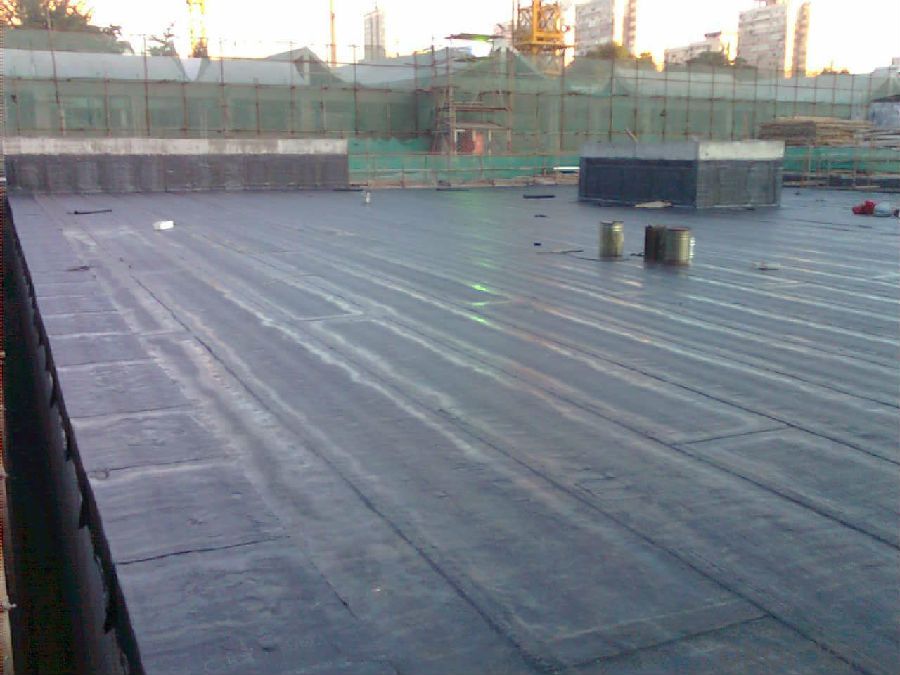
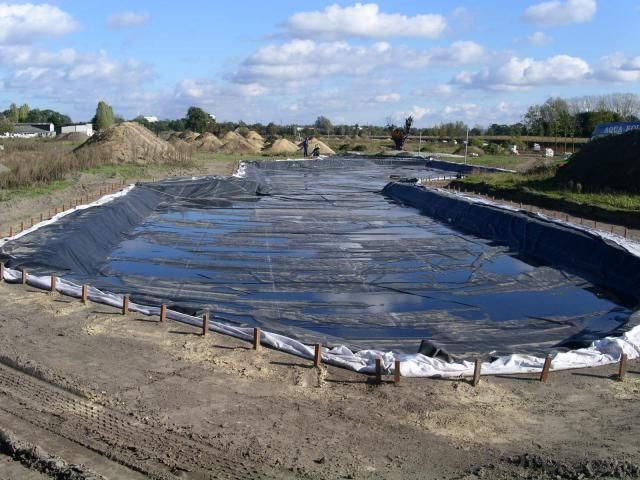
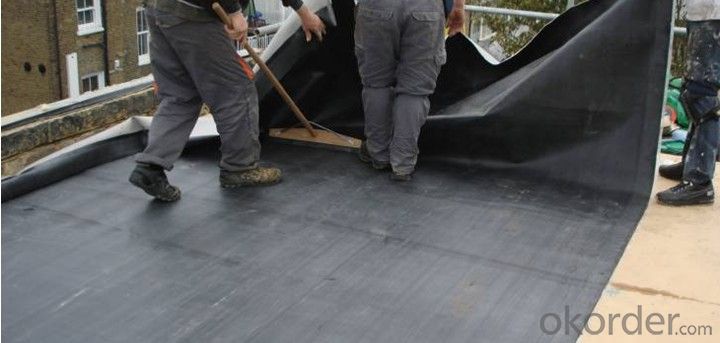
IMages of EPDM Coiled Rubber Waterproof Membrane for Top Roofing:
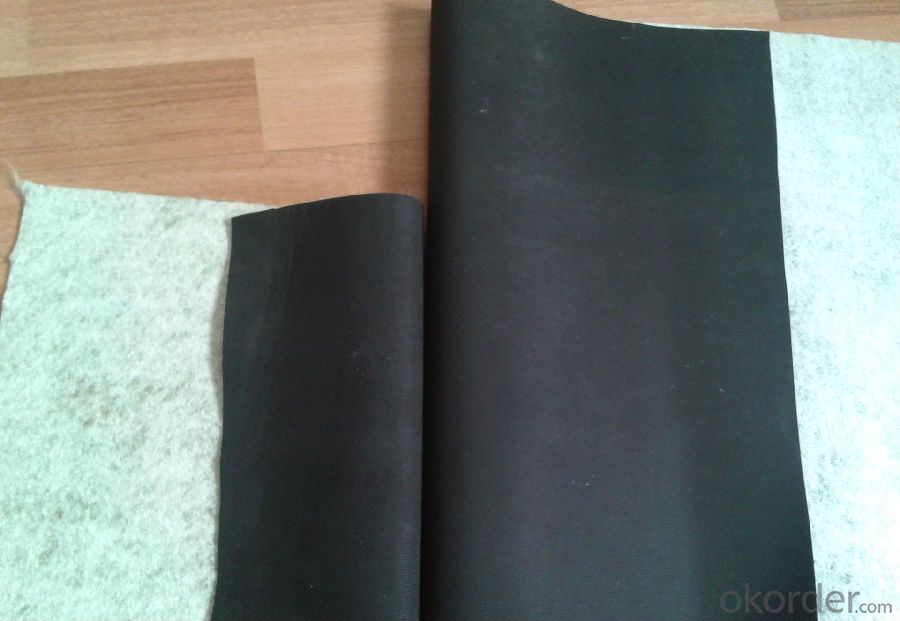
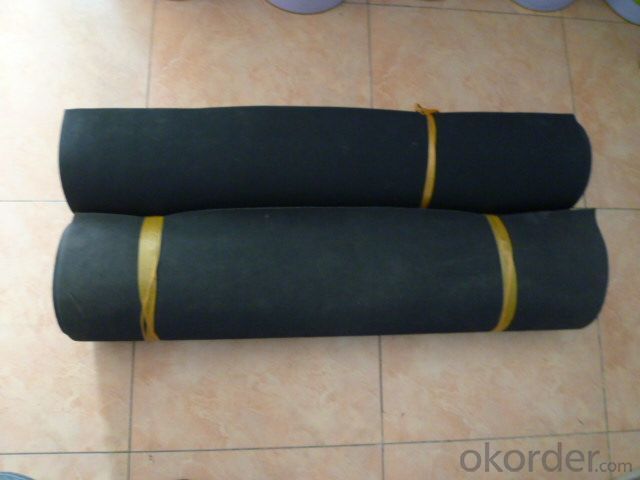
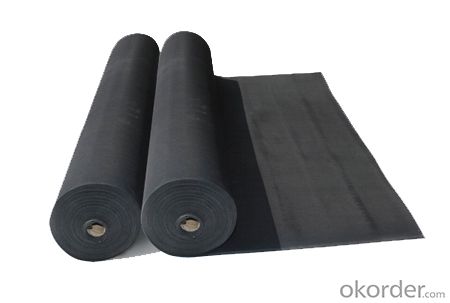
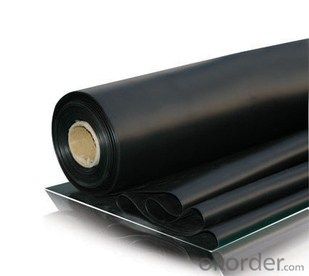
FAQ of EPDM Coiled Rubber Waterproof Membrane for Top Roofing:
1. What are we supplying?
We are specialized in producing Colorful Asphalt Roof Shingle, SBS/APP modified bitumen waterproof membrane, Self adhesive bitumen waterproof membrane, PVC waterproofing membrane, EPDM rubber roofing membrane, Single Component Polyurethane Waterproof Coating, and Spray Polyurea Waterproof Coating
.
2. How Many years experience do we have?
We have been exported to more than 20 countries in the past 15 years.
3. How long do we usually reply your request?
We always reply our customer within 24 hours.
- Q: Are waterproofing membranes resistant to earthquake movements?
- Waterproofing membranes are not specifically designed to be resistant to earthquake movements. Their primary function is to prevent water penetration and protect structures from moisture damage. While they may provide some level of resistance to minor ground movements, they are not intended to withstand the significant forces generated during earthquakes. Additional seismic design measures and materials are required to ensure structures can withstand seismic events.
- Q: Can a waterproofing membrane be applied in cold weather?
- Yes, a waterproofing membrane can be applied in cold weather. However, there are certain considerations that need to be taken into account. It is important to use a membrane that is specifically designed for cold weather applications as some membranes may not perform optimally in low temperatures. Cold weather can affect the curing process of the membrane, so it is crucial to follow the manufacturer's guidelines regarding temperature limitations and application techniques. The surface to be waterproofed should also be clean and dry before applying the membrane, as moisture or ice can interfere with adhesion. In cold weather, it may take longer for the membrane to fully cure and achieve its maximum performance. Therefore, it is advisable to allow sufficient time for the membrane to dry and cure before exposing it to water or other stressors. It is also important to note that extreme cold temperatures can negatively impact the installation process and the overall effectiveness of the waterproofing system. Therefore, it is recommended to consult with a professional waterproofing contractor who has experience working in cold weather conditions to ensure the best results.
- Q: Are waterproofing membranes resistant to hydrochloric acid?
- Yes, waterproofing membranes are generally resistant to hydrochloric acid. These membranes are designed to provide a barrier against water and other liquids, and they are often made from materials such as PVC, EPDM, or TPO, which have excellent chemical resistance properties. Hydrochloric acid is a strong acid commonly used in industrial applications, and it can cause corrosion and damage to many materials. However, waterproofing membranes are specifically engineered to withstand harsh chemicals and protect the underlying structure from water intrusion. As a result, they are typically able to resist the corrosive effects of hydrochloric acid and maintain their integrity and waterproofing properties. It is important to note that the extent of resistance may vary depending on the specific type and quality of the waterproofing membrane, so it is advisable to consult the manufacturer's guidelines and specifications for accurate information on the acid resistance of a particular product.
- Q: Can a waterproofing membrane be used on tunnels?
- Yes, a waterproofing membrane can be used on tunnels. Waterproofing membranes are commonly used in tunnel construction to prevent the ingress of water and protect the structure from potential water damage. These membranes are designed to be highly durable, flexible, and resistant to external factors such as water pressure and ground movements. They provide a reliable barrier against water infiltration, helping to maintain the structural integrity of the tunnel and ensure its long-term functionality.
- Q: Can a waterproofing membrane be used on tunnels with security systems?
- Yes, a waterproofing membrane can be used on tunnels with security systems. The waterproofing membrane is designed to protect the tunnel structure from water infiltration and damage, and it can be installed without interfering with the security systems in place.
- Q: Can a waterproofing membrane be tested for quality or performance?
- Yes, a waterproofing membrane can be tested for quality and performance. Several tests can be conducted to evaluate the effectiveness and durability of the membrane. One common test is the water penetration test, where the membrane is subjected to a certain amount of water pressure to determine if it allows any water to pass through. Another test is the adhesion test, where the strength of the membrane's bond to the substrate is evaluated. Additionally, tests can be conducted to assess the membrane's resistance to chemicals, UV radiation, temperature fluctuations, and physical stress. These tests help determine if the membrane meets the required standards and can perform effectively in various conditions.
- Q: Can a waterproofing membrane be used for art installations or sculptures?
- Yes, a waterproofing membrane can be used for art installations or sculptures. Waterproofing membranes are commonly used in construction projects to prevent water infiltration and protect surfaces from moisture damage. In the context of art installations or sculptures, a waterproofing membrane can provide added durability and protection against environmental elements such as rain, snow, or humidity. This can be especially important for outdoor installations or sculptures that are exposed to the elements. Additionally, a waterproofing membrane can help preserve the integrity and longevity of the artwork, ensuring that it remains visually appealing and structurally sound over time. However, it is important to consult with professionals or experts in waterproofing to ensure the proper selection and application of the membrane, as different types may be more suitable for specific artistic materials or techniques.
- Q: Does a waterproofing membrane prevent water damage to building materials?
- A waterproofing membrane is specifically designed to shield building materials from water damage. Its purpose is to act as a barrier, preventing water from infiltrating the structure and causing harm. Typically, the membrane is applied to areas prone to water intrusion, such as roofs, basements, and foundations. By creating a watertight seal, it effectively stops water from seeping through and harming the building materials. This safeguard is essential in maintaining the structure's integrity and preventing issues like mold growth, rot, and material decay. However, it's crucial to acknowledge that the effectiveness of a waterproofing membrane can vary based on the product's quality and proper installation. Regular maintenance and inspections are also necessary to ensure the membrane remains intact and continues to safeguard against water damage.
- Q: Are there any environmental considerations when using a waterproofing membrane?
- Yes, there are several environmental considerations when using a waterproofing membrane. Firstly, the production and disposal of these membranes can have a negative impact on the environment due to the energy and resources required. Additionally, the chemicals used in some waterproofing membranes can be harmful to the environment and may leach into the soil or water systems. It is important to choose eco-friendly and sustainable options, such as those made from recycled materials or natural alternatives, to minimize the environmental impact. Regular maintenance and proper disposal of the membrane at the end of its life cycle are also crucial to ensure minimal harm to the environment.
- Q: Can a waterproofing membrane be used in shower pans?
- Yes, a waterproofing membrane can be used in shower pans. In fact, it is highly recommended to use a waterproofing membrane in shower pans to prevent water leakage and damage to the underlying structure.
Send your message to us
EPDM Coiled Rubber Waterproof Membrane for Top Roofing
- Loading Port:
- Shanghai
- Payment Terms:
- TT or LC
- Min Order Qty:
- 10000 m²
- Supply Capability:
- 1200000 m²/month
OKorder Service Pledge
OKorder Financial Service
Similar products
Hot products
Hot Searches
Related keywords
